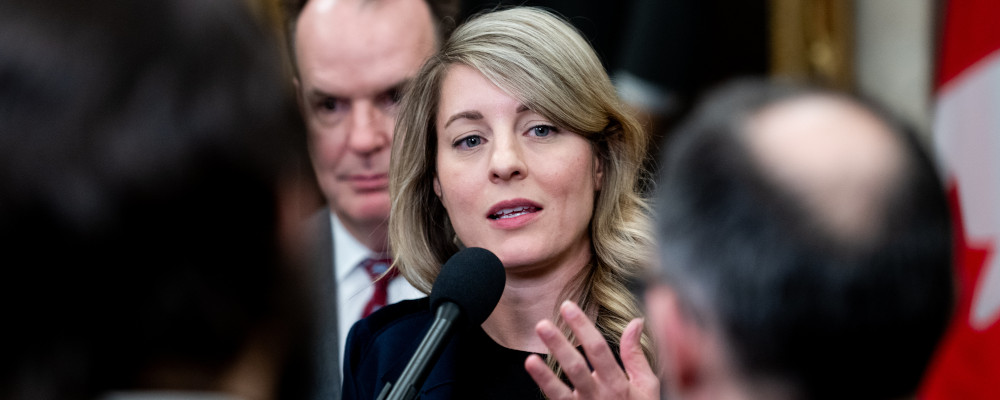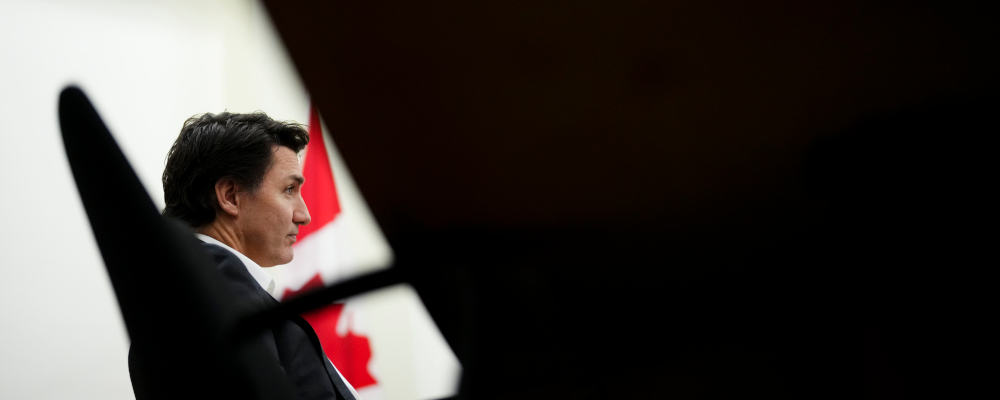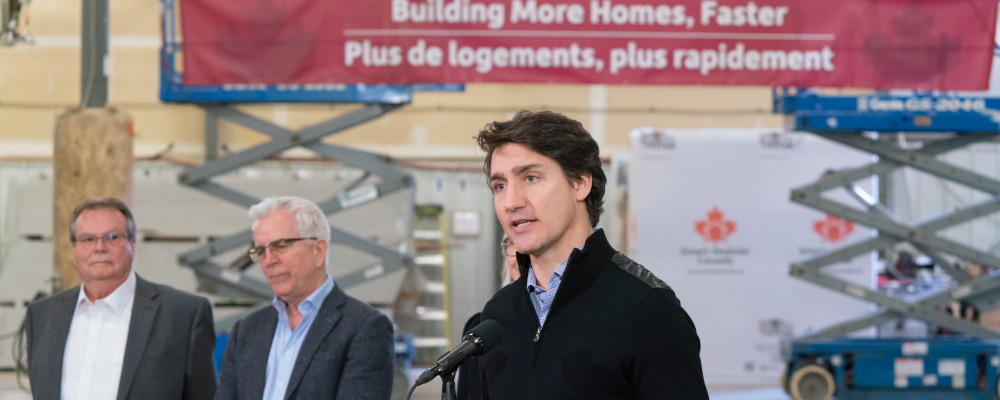This week‘s edition of The Hub’s Weekly Wrap reflects on some of the past week’s biggest stories, including the failure of policing in response to Canada’s rising crime problem, the Liberal Party’s dramatic leftward shift, and two new reports that highlight why prudence is underrated in politics and policymaking.
Bring back broken window policing
We’re living through a spike in property theft and certain violent crimes in Canada’s cities. These issues are now rising up the list of public priorities at the same time that law enforcement seems inherently incapable of addressing them.
A low point was last week when a Toronto police officer advised citizens to make their car keys readily available so that thieves wouldn’t break further into their homes and possibly harm them or their families. As University of Ottawa professor Michael Kempa wrote for us this week, the message seemed abundantly clear: Canadians are essentially on their own.
These developments represent a reversal of past progress in reducing crime and disorder. After successive decades of rising crime, Canada’s crime rate actually fell by nearly half between 1992 and 2012.
This progress was driven by various factors, but a key one was the role of ideas. In the context of high urban crime rates in the 1970s and 1980s, conservative scholars—particularly in the U.S.—advanced the case for what was sometimes described as the “broken window theory” to restore law and order. The basic premise was that police ought to enforce all illegal infractions including relatively mundane ones such as vandalism or public drunkenness in order to create a culture in which the norm was for individuals to obey the law.

The subsequent decline in crime in North American cities represented a major validation of the “broken windows” model and the norm-shaping role of deterrence to improve the conditions for law, order, and public safety.
The past decade or so has by and large witnessed the abandonment of those effective policing strategies. They came to be viewed as too insensitive to the socio-economic factors behind crime and the extent to which they fell (or perceived to fall) disproportionately on racial minorities. We’ve therefore seen a liberalization of law enforcement and policing which places a greater emphasis on responding to the underlying causes of criminality.
The most powerful expression of these intellectual trends was the “defund the police” movement which received significant attention in the aftermath of George Floyd’s death in 2020. Although no jurisdiction fully defunded its police force, the movement’s ethos has influenced the operations, practices, and staffing of law enforcement in various cities across North America.
The recent spike in crime demonstrates the soft-headed fallacy behind these developments. The pendulum has now swung in the direction of a pervasive “underpolicing” problem in many cities. Yet there’s nothing compassionate about subjecting the public to disorder and insecurity—especially since the consequences of crime disproportionately affect low-income individuals and racial minorities.
It must be said that a lot of this type of progressive thinking is quite literally preferencing the interests of criminals (regardless of their circumstances) over their fellow citizens. As a political matter, it’s an unsustainable approach to these issues.
The Toronto police officer’s widely panned comments should put an end to it. Police must meet the rise of criminality with the restoration of deterrence. They need in short to enforce the law whether it’s car theft, drug use, or a broken window.
‘This isn’t our grandparents’ Liberal Party’: The Liberals’ leftward shift in the Trudeau era
A Liberal political commentator tweeted this week a common political claim: Canadian Conservative politics has undergone such a significant rightward shift in recent years that it’s barely recognizable for those who may have supported it in the past.
No one disputes that Conservative politics have evolved in some ways over the years—in large part because the issues have changed, as have the interests and needs of Conservative voters themselves—though many would rightly contest the suggestion that “there is no longer a home for the sensible, reasoned conservatism” of one’s grandparents.
But in any case, the commentator’s arguments about the Conservatives weren’t the most interesting or notable part of his tweet. It was his extraordinary claim that Canadian Liberal politics are only marginally different (“shifted to the Left to an extent”) than they were in the recent past.
That thesis, which already seemed self-evidently wrong, was actually put to the test by this week’s parliamentary vote on an NDP motion concerning the Israel-Hamas war. That only three Liberal MPs voted against abandoning a major ally as it responds to a devastating terrorist attack and tries to recover its citizens who’ve now been held hostage for nearly 170 days is a rather forceful rebuttal. How else can one interpret it but as a radical shift in the centre of gravity of Liberal politics in Canada?
The whole episode conjures in my mind the life and career of Charles Krauthammer, the great McGill-educated, American newspaper columnist, who went from writing speeches for Democratic Vice President Walter Mondale to becoming one of the most important conservative public intellectuals of the past half-century. When asked about his intellectual and political journey, Krauthammer used to invoke Ronald Reagan’s famous line: “I didn’t leave the Democratic Party. It left me.”
His shift started on foreign policy as the Democrats became unreliable “cold warriors” during Reagan’s administration. He later became a more full-spectrum conservative on domestic issues, as he outlined in his 2013 best-selling book, Things That Matter.

The Liberal Party’s own ideological transformation over the past decade or so has followed the opposite path of Krauthammer’s. It started with domestic policy where its abandonment of balanced budgets, single-minded focus on equity over economic efficiency, and full-throated embrace of identity politics signaled a major break from the past. The Trudeau-era Liberal Party no longer has room for past Liberal stalwarts like John Manley, Martha Hall-Findley, or more recently Bill Morneau.
This week’s parliamentary vote showed that these trends have since moved to foreign policy. From a historical ally to withholding arms from Israel as it fights to protect itself from an existential threat, this is no longer our grandparents’ Liberal Party.
It’s certainly not MP Anthony Housefather’s party. Housefather, who’s also a McGill graduate, told reporters following the vote that “a line had been crossed.” He’s since indicated that he’s contemplating his political future as a result.
If he ultimately leaves the Liberal caucus, Housefather will regrettably be able to say: “I didn’t leave the Liberal Party. It left me.”
Prudence over vibes when it comes to policymaking
The week ended with a couple of interesting policy papers which may seem a bit wonky but actually tell us something significant about the virtue of prudence in politics and policymaking.
The first is a new report by the Canadian Climate Institute, an Ottawa-based climate policy think tank that does solid empirical work on climate policy. The paper, which aims to estimate the relative role of various policies in meeting Canada’s 2030 emissions reduction targets, finds that while the industrial carbon price is the single biggest driver of emissions reduction (between 23 and 39 percent), the consumer carbon tax (sometimes referred to as the “fuel charge”) is only responsible for about 8 or 9 percent of projected emissions reductions between now and 2030.
Although the paper’s authors caution that it shouldn’t be interpreted as license to abandon the consumer carbon tax, it’s quite likely to cause many to reach that precise conclusion. That the consumer carbon tax is by far the most contentious element of Canada’s climate policy and possibly the sole (or at least main) obstacle to something approaching a political consensus, this new analysis raises a prudential question: is it worth it?
The second is a report by Scotiabank’s economics team on immigration policy. The paper, which weighs into the recent debate about the effects of heightened immigration levels on productivity and GDP per capita, finds that the Trudeau government’s massive increase in annual immigration intake (both permanent and temporary streams) has reached a level that’s now harmful to Canada’s productivity. In fact, its authors estimate that immigration-driven population growth is responsible for about two-thirds of productivity declines since 2021. They conclude that the “productivity-neutral” pace of population growth is actually closer to about 350,000 per year.
The report has rightly been interpreted as a criticism of the Trudeau government’s “let-it-rip” immigration policy and a validation of the Harper government’s still ambitious yet more pragmatic record. Annual permanent resident immigration levels averaged about 255,000 during the Harper years, which is barely half of the current target and a far cry from more than 1 million immigrants who entered the country last year.
The Trudeau government is now scrambling to cut non-permanent resident numbers in the face of growing public concerns about the effects on housing prices. It’s clearly a case study of the negative consequences of political imprudence and policymaking based on vibes rather than sound judgement.
Russell Kirk, the twentieth-century conservative intellectual, warned against imprudence in politics which he described as an instinct to “dash at [one’s] objectives without giving much heed to the risk of new abuses worse than the evils they hope to sweep away.”
These two reports—particularly the second one—demonstrate his point. The Liberals have put Canada’s unique endowment of relatively high levels of public support for relatively high levels of immigration at risk because of their imprudence. They should be careful not to do the same with climate policy.
Recommended for You

Ginny Roth: J.D. Vance, Pierre Poilievre, and how they slice their economic pie

David Polansky: As President Biden leaves the race, will the Democratic Party hodgepodge hold?

Malcolm Jolley: Cool Chardonnays for warm days

Five Tweets on Western Canada’s devastating wildfires











